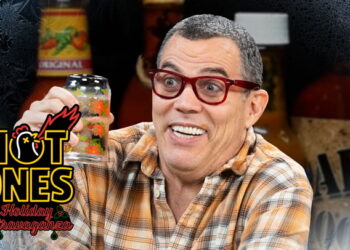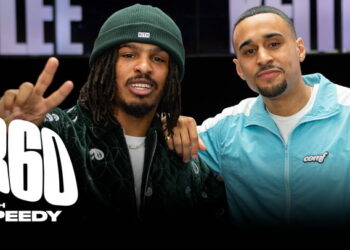When Tony Hawk walked out onto the Oscars stage earlier this month, it was a version of him we weren’t used to seeing. The seemingly weightless, perennially suspended in mid-air skateboarder was strikingly earthbound, as he strode gingerly across the stage to present an award. Hawk had broken his femur after landing awkwardly on a ramp just a few weeks earlier, and as he told me when we spoke over Zoom recently, Oscar Sunday became just the latest overly ambitious goal in a long line of many.
“I got the call to present, and I was only a week out from my injury and I decided right then and there that that’s going to be the first day I walk,” he told me while sitting in front of a kaleidoscopic wall of skateboards. “When they made the request I only assumed they didn’t know I got hurt. I had to use my cane across the red carpet.”
It’s easy to imagine the people in Hawk’s inner circle telling him to “rest,” or “take it easy,” things us mortals might have considered given the circumstances. But as we come to learn in the new HBO Max documentary about his life and career, appropriately titled Tony Hawk: Until the Wheels Fall Off, Hawk isn’t like us mortals. Directed by Sam Jones (I Am Trying to Break Your Heart), the film uses rare footage of his gravity-defying tricks to track Hawk’s ascent from lanky teen outcast skating pools with his friends in the ‘80s, to the biggest skateboarder in the world.
But as we learn from candid interviews with Hawk and the people closest to him, his ambition, obsessiveness, and success took a huge physical and personal toll on both him and his family. It’s also made Hawk into a living legend, as evidenced by his recent Oscars invite. Here, I ask Hawk about whether or not he would do anything differently, what it’s been like to have a front-row seat to skateboarding’s evolution, and how he ended up recreating that meme.







